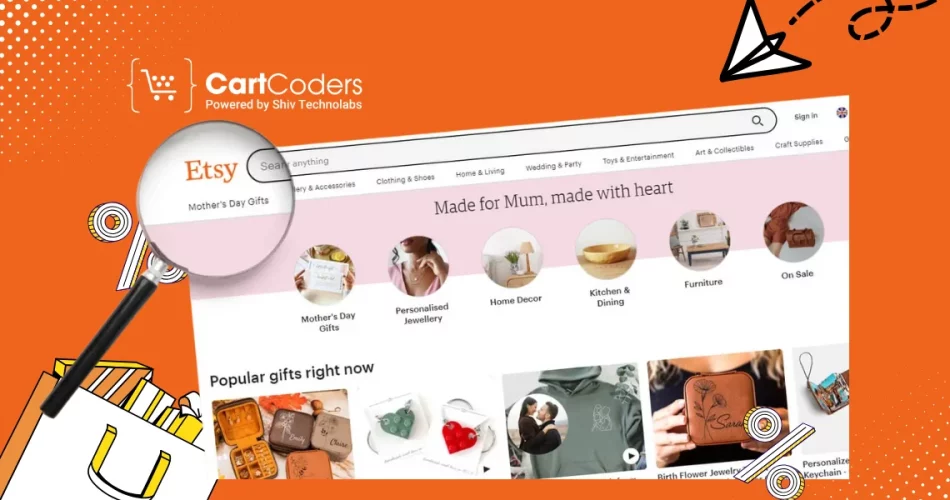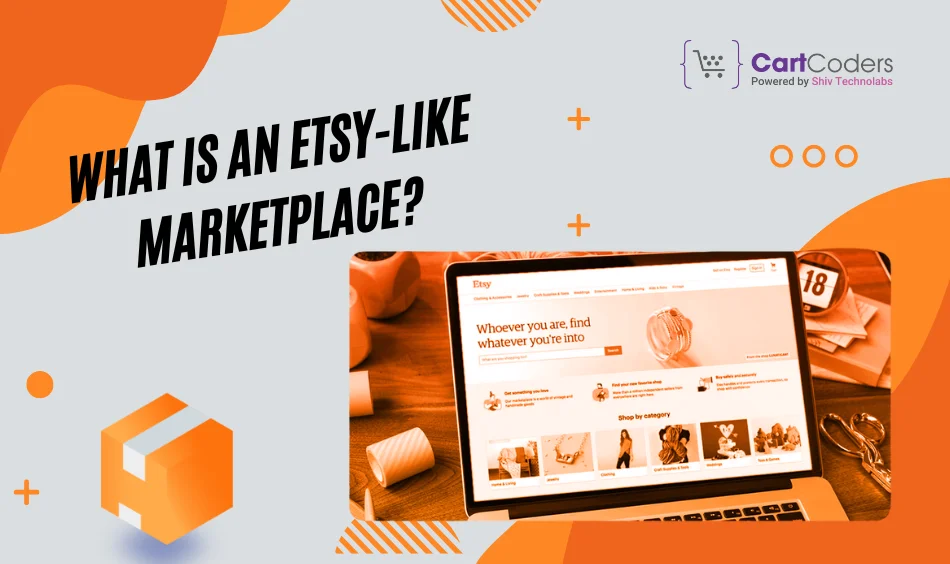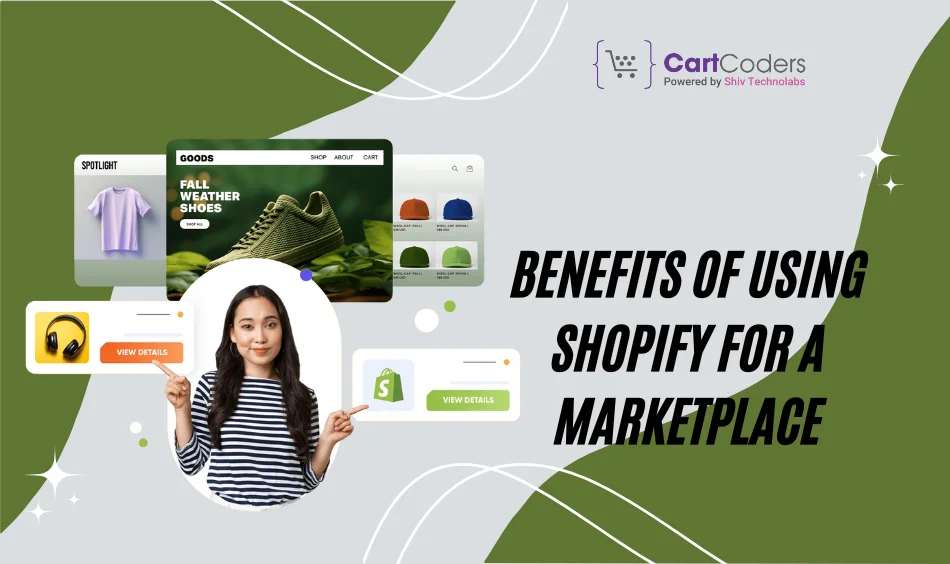Custom Engagement Solutions
Unlock tailored solutions with a free, no-obligation strategy session.
Expert Developers & Engineers on Demand
Scale Your Team with Skilled IT Professionals
Expert Guidance for Digital Transformation

Gone are the days when Etsy was the go-to destination for handmade, vintage, and creative goods. Now it is a user-friendly marketplace that connects buyers and sellers. It is no longer impossible for large companies to build a similar online platform. Now, any business or entrepreneur can create a marketplace like Etsy using tools like Shopify, following a clear, step-by-step plan.
In this article, we will discuss how to build an Etsy-like marketplace, what it should include, the associated costs, and the overall process. The idea is to support anyone who wants to build a marketplace from scratch that operates well on both desktops and mobile devices, with many sellers.

A marketplace like Etsy is a platform where multiple sellers sell their products in one place. Many sellers and buyers can view products from different sellers, add them to a single cart, and check out in one process. As the marketplace owner, you earn commissions or subscription fees.
The advantage of this business model is that the owner does not manage inventory or delivery. The sellers manage their stock and shipments. It helps save costs and boost profit margins.
The model of online marketplace continues to grow. In 2023, there were 96.48 million active buyers and over 9 million sellers on Etsy. In addition, niche-based marketplaces generate $2.7 billion in revenue, demonstrating that they attract genuine business.
These numbers demonstrate that it is possible for a marketplace centred on specific products, such as handmade goods or vintage items, to be successful if it provides a good user experience and easy seller access.

Building an online store on Shopify is one of the most reliable platforms. However, with the right apps and extensions, it can become a robust multi-vendor marketplace. Below are some reasons why Shopify is a good option:
Shopify powers over 4.4 million websites worldwide and remains the most popular platform for small to mid-sized online marketplaces.
The marketplace must have both basic and advanced features of interaction between the buyers and sellers to run smoothly.
Let sellers sign up and create their profiles.
Every product must be able to be managed by its vendors, prices, orders, and payments.
It requires sellers to describe the product, provide images, categorise it, and specify the pricing.
The most important thing for buyers to do is to find products by keywords, categories, and tags easily.
Let buyers buy items from multiple vendors and make a single checkout.
Ensure you have trusted options like Stripe, PayPal, or Shopify Payments.
Sellers and products should be rated and reviewed by buyers.
Order status tracking is easy for the buyers and sellers.
Responsive design is necessary because nearly 70% of buyers use mobile devices to shop.
Vendors should come under the control of the marketplace owner, the marketplace owner should set commissions, and the marketplace owner should manage content.
If you break down the process of starting a marketplace into small steps, it becomes simple. Building an Etsy-like marketplace using Shopify is as follows:
Choose a product category from art, crafts, vintage goods or home decor. It speeds up reaching the right audience in a narrow niche.
Based on your store’s size and traffic, decide between a Basic or Standard Shopify plan.
Apps like Webkul Multi-Vendor Marketplace or Multi-Seller Marketplace can be used to allow multiple sellers.
The layout, colours, and branding have been changed to suit the business style.
From the admin panel, you can set seller permissions, commission rates, and approval rules.
Global or region-based shipping rules and payment gateways are set up.
Verify that registration, listing, cart, and payment processes work properly.
Invite sellers, add the first products to sell, and run ads to reel in buyers.
Setting up a Shopify-based Etsy marketplace comes with various costs. Below is a breakdown of typical expenses:
| Item | Estimated Cost (USD) |
| Shopify Monthly Plan | $39 – $105 |
| Multi-Vendor App (Monthly) | $20 – $60 |
| Custom Design and UI | $400 – $1,000 |
| Shopify Development Services | $1,500 – $4,000 |
| Payment and Shipping Setup | $200 – $500 |
| SEO and Marketing | $300 – $1,000 |
| Total Estimated Cost | $2,500 – $6,500 |
Prices depend on the design’s complexity, the number of features to be included, and whether third-party developers are involved. Using pre-made apps saves money, but the work of custom apps is more profitable in the long run.
The following are a few ways to make money from a marketplace like Etsy:
With this model, sellers can continue to sell their products and manage their stock.
With Shopify and certain tools, creating a marketplace like Etsy is now significantly easier. If you have done your homework and have the right features, a well-planned platform can start growing fast and become global. Buyers have a one-stop destination to find a wide range of products, and sellers have a platform to showcase their products.
If you want to avoid handling the technical side of building a marketplace on Shopify. In that case, CartCoders is here to provide complete multivendor setup services for those who want to build a marketplace on Shopify. Design, app integration, feature setup, and testing are provided by our team for a faster and smoother launch.
Head over to CartCoders’ Shopify Marketplace Services to get started with a trustworthy partner.
Projects delivered in 15+ industries.
95% retention rate, building lasting partnerships.
Serving clients across 25+ countries.
60+ pros | 10+ years of experience.